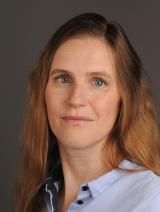
Séverine Autesserre is a an expert in war, peace, peacebuilding, peacekeeping, humanitarian aid, and African politics. She currently works as a Professor of Political Science, specializing in international relations and African studies, at Barnard College, Columbia University. Dr. Autesserre was awarded an AC4 interdisciplinary research award in 2010 and 2011 (competitive renewal) for her work on international interven [ ... ]
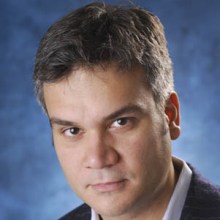
Alexander Cooley is the Tow Professor for Distinguished Scholars and Practitioners in Political Science and the Chair of the Political Science Department at Barnard College, Columbia University in New York. Professor Cooley’s research examines how external actors have influenced the political development and sovereignty of the former Soviet states, with a focus on Central Asia and the Caucasus. His latest [ ... ]
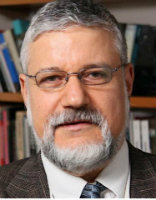
Dr. Barkan is Professor of International and Public Affairs at Columbia University, Director of SIPA's Human Rights Concentration, and Director of Columbia's Institute for the Study of Human Rights. He is also founding Director of the Institute for Historical Justice and Reconciliation (IHJR) in The Hague. Professor Barkan served on ISHR’s board of directors before becoming ISHR’s co-director in 2007 and direc [ ... ]
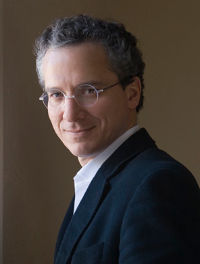
Scott Barrett is the Lenfest-Earth Institute Professor of Natural Resource Economics at SIPA and the Earth Institute. He was previously a professor at the Johns Hopkins University School of Advanced International Studies in Washington, DC, where he also directed the International Policy program. Before that, he was on the faculty of the London Business School. He has also been a visiting scholar at Yale. Barrett's r [ ... ]
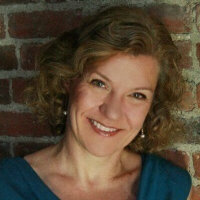
Jo Becker is the advocacy director for Human Rights Watch's children's rights division, where she is responsible for the organization's global advocacy strategies on issues including child labor, children and armed conflict, juvenile justice, and violence against children. She is the founding chairperson of the international Coalition to Stop the Use of Child Soldiers, which campaigned successfully for an international t [ ... ]
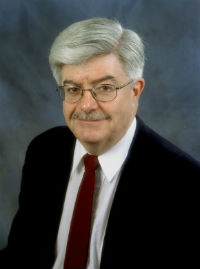
Richard K. Betts is the Arnold A. Saltzman Professor of War and Peace Studies in the political science department, Director of the Saltzman Institute of War and Peace Studies, and Director of the International Security Policy program in the School of International and Public Affairs at Columbia University. He was Director of National Security Studies at the Council on Foreign Relations for fou [ ... ]
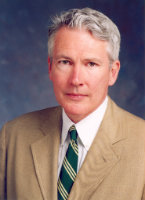
One of the nation's leading constitutional theorists, Professor Bobbitt's interests include not only constitutional law but also international security and the history of strategy. Bobbitt is a Fellow of the American Academy of Arts and Sciences. He is also a Fellow of the Club of Madrid. He is a Life Member of the American Law Institute, and a member of the Council on Foreign Relations, the Pacific Council on Internation [ ... ]
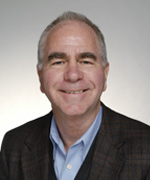
Dr. Neil Boothby is an internationally recognized expert and advocate for children affected by war and displacement. As a senior representative of UNICEF, UNHCR and Save the Children, he has worked for more than 20 years with children in crises in Africa, Asia, Latin America, and Eastern Europe. As director of the Program on Forced Migration and Health at the Mailman School, his research focuses on the psychosocial conseq [ ... ]
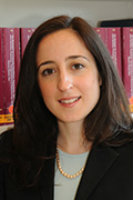
Alexandra Carter is the director of the Edson Queiroz Foundation Mediation Program and director of Clinical Programs at Columbia Law School. Carter won the Jane Marks Murphy Prize for clinical advocacy while a student at Columbia Law School and has become a strong advocate of mediation as a valuable tool for many kinds of legal challenges. Through the New York Peace Institute, a nonprofit that specializes in mediati [ ... ]
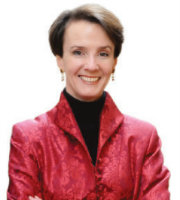
Professor Sarah Cleveland is a noted expert in international law and the constitutional law of U.S. foreign relations, with particular interests in the status of international law in U.S. domestic law, international humanitarian law, human rights law, and the constitutional law of U.S. foreign relations. From 2009 to 2011, she served as the Counselor on International Law to the Legal Adviser at the U.S. Department of Stat [ ... ]
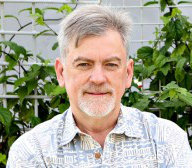
Glenn Denning joined Columbia University's Earth Institute in 2004 as Senior Research Scholar and Associate Director of the Tropical Agriculture and Environment Program. He helped establish the MDG Centre, East and Southern Africa in Nairobi, Kenya, and served as its director for five years. With more than 25 years of experience in international agricultural research and development, Denning provided leadership to the MDG [ ... ]
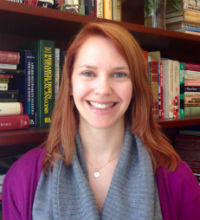
Danielle Coon joined the Morton Deutsch International Center for Cooperation and Conflict Resolution as the Associate Director in September 2015. Danielle previously worked with a non-profit social service agency in New York City managing apartment buildings for low-income senior citizens and focused on housing issues in Ecuador with Habitat for Humanity through advocacy, education programs and by leading volunteer groups [ ... ]
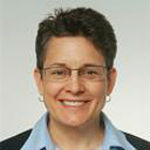
Tanya L. Domi is the Senior Public Affairs Officer for International Affairs, Economics and Politics at Columbia University's Office of Communications and Public Affairs. Prior to joining Columbia's public affairs staff in 2006, she worked internationally for more than a decade on issues related to democratic transitional development, including political and media development, gender issues, sex trafficking, human rights [ ... ]
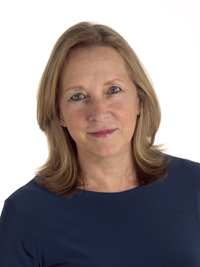
Dr. Donna Hicks is an Associate at the Weatherhead Center for International Affairs, Harvard University where she chairs the Herbert C. Kelman Seminar on International Conflict. Her work is devoted to advancing the understanding of international and interethnic conflicts, and developing interactive processes that can be effective in managing or resolving such conflicts. Donna has 20 years of experience as a facilitator du [ ... ]

John L. Hirsch joined the International Peace Academy in July 1998 following the completion of a 32-year career in the United States Foreign Service. After three and a half years as Vice President he became Senior Fellow on January 1, 2002. He has been responsible for IPA's program on "The United Nations and International Terrorism" in 2002-2003, and served as Acting Director of the Africa Program in 1999 and ag [ ... ]
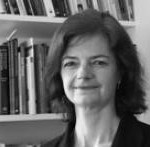
Theresa Whitfield’s primary research areas are peacemaking and mediation, specializing in issues such as engagement with armed groups and the varied roles played by international actors, including the United Nations, in conflict resolution. In addition to her position at CICR, she is a Senior Adviser to the Geneva-based Centre for Humanitarian Dialogue, responsible for liaison with the United Nations; a [ ... ]
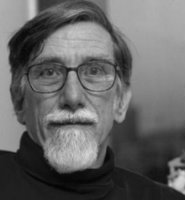
Robert Jervis is the Adlai E. Stevenson Professor of International Affairs at Columbia University. He is a coeditor of the Security Studies Series published by Cornell University Press, serves on the board of nine scholarly journals, and has authored over 100 publications. Dr. Jervis is a fellow of the American Association for the Advancement of Science and the American Academy of Arts and Sciences. He has also served a [ ... ]
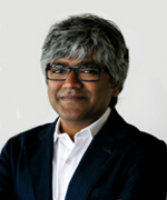
Dr. Unni Krishnan Karunakara was appointed International President of Médecins Sans Frontières (MSF) in June 2010. His first engagement in MSF was in 1995, when he was tasked with setting up a tuberculosis control programme in Jijiga, Ethiopia. He went on to become Medical Coordinator for MSF's activities in Azerbaijan, providing basic health care services to forced migrants from Nagorno-Karabakh, in Brazil [ ... ]
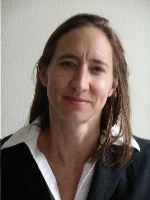
Jacqueline Klopp is an Associate Research Scholar at the Center for Sustainable Urban Development at Columbia University. Previously, she taught for many years at the School of International and Public Affairs at Columbia University where she remains affiliated. Her research focuses at the intersection of sustainable land use, democratization, violence, displacement and corruption. Klopp is the author of articles for Afr [ ... ]
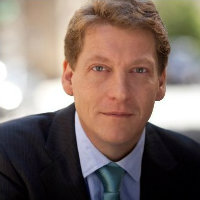
Rainer Braun co-teaches the course "Human Rights and Development Policy" at SIPA. His research interests are the political economy of human rights, labor rights, and corporate social accountability. Rainer works as a research analyst for GovernanceMetrics International (GMI), a ratings agency that compares the governance practices of publicly traded companies. He also serves as an adjunct professor at LIU's Uni [ ... ]

Mitch is the Executive Managing Director for Intelligence and Analytic Solutions at K2 Intelligence in New York, where he leads K2’s Data Analytics practice. Before joining K2, Mitch served as Director of Intelligence Analysis at the New York Police Department’s Intelligence Division. There, he supervised the Department’s entire portfolio of ongoing terrorism-related investigations and ma [ ... ]
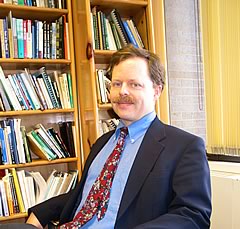
Marc Levy is deputy director of the Center for International Earth Science Information Network (CIESIN), a research and data center of the Earth Institute of Columbia University that utilizes scientific data and advanced information technology to advance understanding of how humans affect and manage the environment, and in turn, how environmental variability and change affect society. He also serves as an adjunct professo [ ... ]
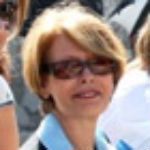
Elisabeth Lindenmayer directs the United Nations Studies Program at SIPA, teaches courses on the UN Security Council and peacekeeping/peacebuilding in Africa. She also serves as a senior advisor to SIPA's Center for International Conflict Resolution. Lindenmayer is a member of the Advisory Panel of the Security Council Report. She also serves as a board member of the Kofi Annan Foundation and on the advisory board of [ ... ]
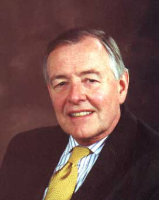
Professor Martin's professional experience has been built around his 29 years as executive director of Columbia's Center for the Study of Human Rights, of which he was a co-founder, along with Law and University Professor Louis Henkin. Prior to being executive director, and later simultaneously, he was director of the Earl Hall Center at Columbia University; lecturer in the School of International and Public Affairs; and [ ... ]
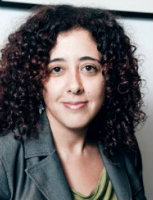
Dr. Naira Musallam heads Research and Development for North and Latin America at YSC, Ltd , a business psychology firm, where she supports the expanding Americas business in the areas of innovation, research and analysis with clients in various sectors including finance, energy, insurance, pharmaceutical, luxury goods, media and technology, and other services. Naira has worked in the research and development space fo [ ... ]
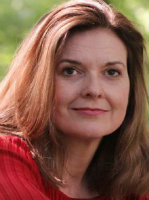
Nelson specializes in the area of international media development and has worked extensively as an analyst, evaluator, and practitioner in the field. She has taught at Columbia University since 1995, integrating student online publications on their research. Nelson is a graduate of Yale University, a member of the Council on Foreign Relations, and the recipient of a 2005 Guggenheim Fellowship for work on media and Na [ ... ]
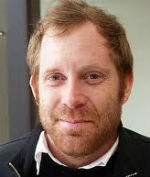
Jesse Hardman is a reporter, media developer, and journalism professor. He’s the creator and manager of the Listening Post, a community media engagement project based in New Orleans that uses cell phones and community based strategies to get and share information and news. Hardman also covers coastal issues and climate change for New Orleans Public Radio. He’s a contributor to NPR, Al Jazeera America, Le [ ... ]
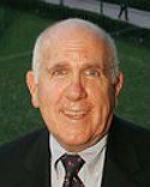
Elliott Sclar is the Director of CSUD and Professor of Urban Planning and International Affairs at Columbia University. He holds senior appointments in the Graduate School of Architecture, Planning, and Preservation and the School of International and Public Affairs and is an active participant in the work of the Earth Institute at Columbia University (EI). Sclar is a member of the Advisory Board of the Global Resea [ ... ]
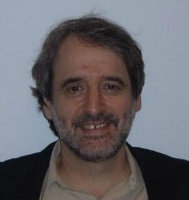
Ted Perlmutter is a technology consultant and information systems architect. He is responsible for Web site coordination and database development, and has been involved in creation of the Religious Peacemaking Database project. Perlmutter’s research interests focus on how Internet technology can promote knowledge networks among political and social activists. Presently a visiting fellow at the Center for Europ [ ... ]
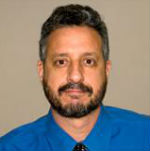
Gerald Martone is Director of Humanitarian Affairs at the International Rescue Committee's headquarters in New York, where he is involved in advocacy initiatives that influence policy and public support for people affected by political oppression, disasters, and violent conflict. Martone was previously Director of Emergency Response with the International Rescue Committee. In this capacity, he oversaw emergency assessmen [ ... ]
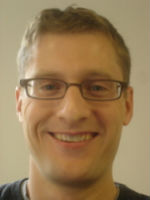
Daniel Corstange (Ph.D., Michigan, 2008) is currently at work on a book project that examines the institutional incentives that privilege coordination on ethnic political coalitions over "policy" coalitions, and the patronage dynamics that result from reliance on ethnic coalitions. Professor Corstange's interests in quantitative methods focus on response bias and eliciting truthful answers to sensitiv [ ... ]
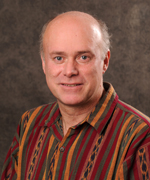
Les Roberts did a post-doctorate fellowship in epidemiology at the Centers for Disease Control and Prevention where he worked for 4 years. In 1994, he worked as an epidemiologist for the World Health Organization in Rwanda during their civil war. Les was Director of Health Policy at the International Rescue Committee from Dec. 2000 until April of 2003. Les had led over 50 surveys in 17 countries, mostly measuring [ ... ]
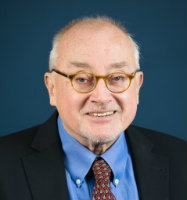
Dirk Salomons is the director of the Program for Humanitarian Affairs at the School of International Public Affairs, Columbia University, where he also heads the International Organizations specialization. In his research as well as in teaching, Salomons focuses on the interaction between policy and management in humanitarian operations; he has a particular interest in the transition from relief to recovery in count [ ... ]

Mary M. (Polly) Cleveland is an economist and long-time activist for social justice. She is the Executive Director of the Association for Georgist Studies (AGS), named for the great nineteenth-century American economist and reformer, Henry George. George attributed the persistence of poverty in the midst of economic growth to concentrated ownership of land and other natural resources. He advocated taxing the "rent&qu [ ... ]
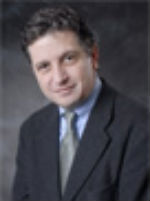
Graeme Simpson is working as an independent consultant and Senior Advisor to the Director General of Interpeace, a global peacebuilding organization headquartered in Geneva. Interpeace is working in 18 conflict and immediate post-conflict zones around the world. He has worked extensively on issues related to transitional justice, including work with the South African Truth and Reconciliation Commission, and on the transfo [ ... ]
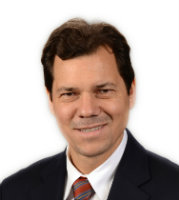
Scott Smith was a political affairs officer in the United Nations for 12 years, most of those working on Afghanistan, including as the senior political affairs officer and team leader for Afghanistan within the Department of Peacekeeping Operations between 2007 and 2009, and Special Assistant to the Special Representative of the Secretary-General in Afghanistan, Kai Eide, between 2009 and 2010. He also participated in the [ ... ]
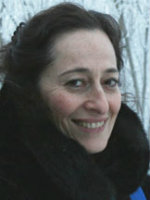
Elsa Stamatopoulou joined Columbia in 2011. Her arrival marked the completion of distinguished service at the United Nations (Vienna, Geneva and New York) with some 22 years dedicated to human rights. Indigenous issues were part of her portfolio since 1983 and she became the first Chief of the Secretariat of the United Nations Permanent Forum on Indigenous Issues in 2003. Last year she taught the first ever course a [ ... ]
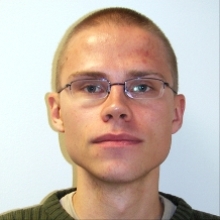
Johannes Urpelainen is an Assistant Professor of Political Science at Columbia University and a Member of the Arnold A. Saltzman Institute of War and Peace Studies. His current research interests include international institution design, global governance, international regulation, democratic accountability, and domestic-international linkages. Urpelainen specializes in international cooperation and political economy; hi [ ... ]
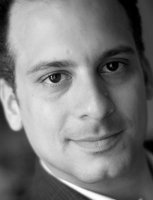
Nikolas Katsimpras is a Senior Fellow of the Hellenic American Leadership Council, lecturer at Columbia University's Negotiation and Conflict Resolution program, and assistant adjunct professor at the Dispute Resolution program at John Jay College of Criminal Justice. He also designed the Conflict Resolution Lab of the graduate program in Development Practice at Columbia University's School of International and Publ [ ... ]
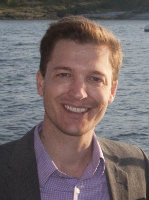
Tom Hill is an adjunct faculty member of SIPA and is a lecturer in the International Conflict Resolution specialization. His primary research interests are in the history of the international mediation of civil wars and the strategic theory of peacemaking. He is the director of a track II mediation program, in partnership with the Peace and Reconciliation Section of the Royal Norwegian Foreign Ministry and the Conflict, [ ... ]
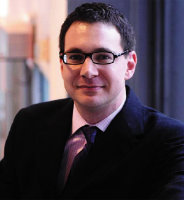
Matthew Waxman is an expert in national security law and international law, including issues related to international human rights and constitutional rights; military force and conflict resolution; and terrorism. He holds a J.D. from Yale Law School and clerked for Associate Supreme Court Justice David H. Souter and Judge Joel M. Flaum of the U.S. Court of Appeals for the Seventh Circuit. Before joining [ ... ]
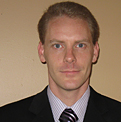
Mark Whitlock is a faculty advisor in Columbia University's Negotiation and Conflict Resolution master's program where he teaches "Networking and Sustainability" as a component of the Capstone Thesis seminars. He is concurrently an adjunct professor in New York University’s Global Affairs Program where he teaches courses on "Statebuilding and International Policy" and "Prevention of Mas [ ... ]
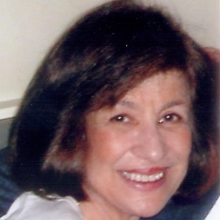
Stephanie Neuman is the Director of the Comparative Defense Studies Program and a Senior Research Scholar at the Arnold A. Saltzman Institute of War and Peace Studies at Columbia University. She is also an Adjunct Professor in the School of International and Public Affairs. Neuman specializes in third world security issues. Her research interests include war and conflict in the third world, defense [ ... ]
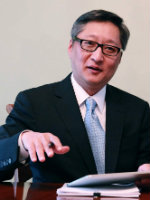
Jeong-Ho Roh is a recognized expert on North and South Korean legal relations. Specializing in the development of constitutionalism and democracy in both the South and North Korean legal systems, as well as U.S. and East Asian international transactions, Roh served as Legal Advisor to the Korean Ministry of National Unification on the KEDO North Korean Light-water Reactor Project and he is a member of the Korean Min [ ... ]
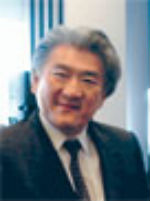
As the Executive Secretary to the International Criminal Court Conference, Dr. Lee is responsible for the organization and management of the Conference and its subsidiary bodies. In addition, he is currently Director of the Codification Division in the Office of Legal Affairs and also acts as Secretary of the International Law Commission and of the Sixth (Legal) Committee of the General Assembly and of three other law-mak [ ... ]
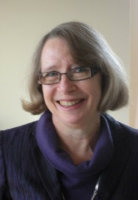
Professor Damrosch joined the Columbia faculty in 1984. From 1984 to 1989 she was an associate professor at the School of International and Public Affairs. Her principal areas of interest are public international law and the U.S. law of foreign relations. She is named the Henry L. Moses Professor of Law and International Organization. Her publications include International Law: Cases and Materials, 4th edition with Pugh [ ... ]
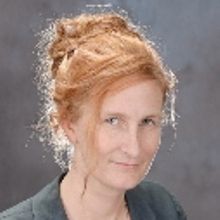
Tonya Putnam is an Assistant Professor in the Department of Political Science and a Member of the Arnold A. Saltzman Institute of War and Peace Studies at Columbia University. Putnam investigates issues at the intersection of international relations and international law. Her primary research interests involve extraterritoriality, transnational regulatory disputes, and exploring how international legal pr [ ... ]
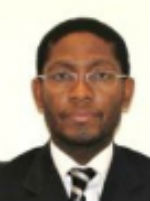
Tseliso Thipanyane, B.Sc., LL.B., and LL.M., is the former chief executive officer of the South African Human Rights Commission and is currently an independent consultant on human rights, democracy and good governance. Thipanyane is a member of the advisory board of the Children Institute of the University of Cape Town in South Africa and a member of the advisory board of the Council for the Advancement of South Africa's [ ... ]
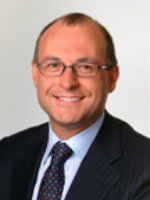
Francesco Mancini is Non-resident Senior Adviser at the International Peace Institute (IPI), where he was previously Senior Director of Research. His work focuses on geostrategic analysis, multilateral diplomacy, global governance, armed conflicts and the means to prevent and solve them. He is an Adjunct Associate Professor at the Lee Kuan Yew School of Public Policy in Singapore, where he teaches negotiatio [ ... ]
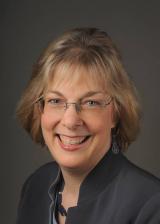
Kimberly Marten is a professor (and the former department chair) in the political science department at Barnard College, Columbia University. She specializes in international relations and international security. She serves on the Executive Committee and chairs the Development and Fund-Raising Committee of the Harriman Institute at Columbia University, and is also a faculty member of Columbia's Saltzman Institute of War [ ... ]
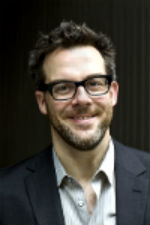
Chris Blattman is an Assistant Professor of Political Science & International Public Affairs at Columbia University, where he teaches on the political economy of development, African politics, applied statistics, and the causes of war and violence. He has also been faculty at Yale University and holds a PhD in Economics from the University of California at Berkeley, and a Master’s in Public Administration and In [ ... ]
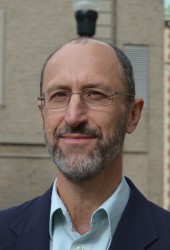
Jack Snyder (Ph.D., Columbia, 1981) is the Robert and Renee Belfer Professor of International Relations in the Department of Political Science and the Saltzman Institute of War and Peace Studies at Columbia. His books include Electing to Fight: Why Emerging Democracies Go to War, co-authored with Edward D. Mansfield; From Voting to Violence: Democratization and Nationalist Conflict; Myths of Empire: Domestic Politics [ ... ]
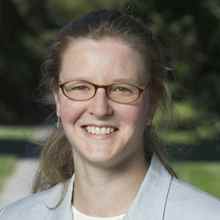
V. Page Fortna is a Professor in the Department of Political Science and a Member of the Arnold A. Saltzman Institute of War and Peace Studies at Columbia University. Her research focuses on peacekeeping, war termination, and the durability of peace in interstate and civil wars. Fortna teaches classes on international politics, war termination, cooperation and security, and research methods. She is [ ... ]
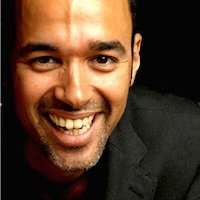
José Pascal da Rocha is a faculty member and lecturer with the M.S. program on Negotiation and Conflict Resolution. He is also an Adjunct Professor with the City University of New York, teaching on leadership and management, and a lecturer with the Center for Conflict Studies at the University of Marburg, Germany, teaching courses in political science. He is also a political adviser and mediator expert. [ ... ]
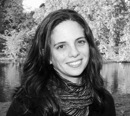
Dr. Shahar Sadeh is the Director of the Faculty Engagement Program at the Jewish Community Relation Council of NY. Since 2014 she has been working with faculty members all across NYC to create and enhance nuance discussions about Israel and the Israeli Palestinian conflict on university and college campuses. She curated and led many academic events, workshops as well as academic study tours to Israel and the Palestinian [ ... ]
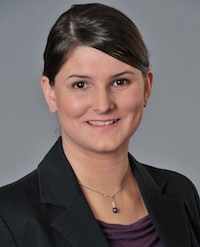
Inga Winkler is a lecturer in the Institute for the Study of Human Rights and the Director of Undergraduate Studies for the Human Rights Program. Previously, she has been in residence as a visiting scholar the Center for Human Rights and Global Justice at NYU, at Stellenbosch (South Africa) and at Berkeley. She is an affiliate of the Economic and Social Rights Working Group at the Human Rights Institute at the Universi [ ... ]

André Corrêa d’Almeida, PhD, is a political economist and a designer of learning environments with several management and academic leading roles at Columbia University in the fields of international education programs, institutional design and sustainable development. As a trust-builder he strives to develop new collaborative approaches to address issues of coordinated action around [ ... ]
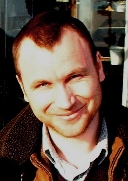
Macartan Humphreys (Ph.D., Harvard, 2003) works on the political economy of development and formal political theory. Ongoing research focuses on civil wars, post-conflict development, ethnic politics, natural resource management, political authority and leadership, and democratic development. He uses a variety of methods including survey work, lab experimentation, field experimentation, econometric analysis, game theoreti [ ... ]
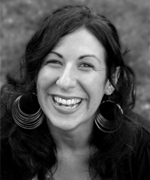
Lindsay Stark is an Associate Professor of Clinical Population and Family Health in Columbia University's Program on Forced Migration and Health. She has over a decade of experience leading applied research on protection of women and children in humanitarian settings. Dr. Stark's particular area of expertise is measuring sensitive and difficult-to-measure social phenomenon. Dr. Stark has led assessment and evaluatio [ ... ]
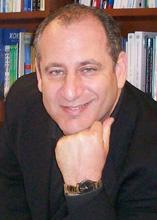
David L. Phillips is currently Director of the Program on Peace-building and Rights at Columbia University’s Institute for the Study of Human Rights. Phillips has worked as a senior adviser to the United Nations Secretariat and as a foreign affairs expert and senior adviser to the U.S. Department of State. He has held positions as a visiting scholar at Harvard University’s Center for Middle East Studies, [ ... ]
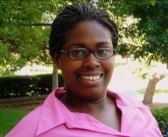
Kimuli Kasara received her Ph.D. from Stanford in 2006. Her dissertation focused on ethnic politics in Africa and on African political economy. Her current work concerns colonialism in East Africa, communal violence and political parties. [ ... ]

Lawrence G. Potter teaching interests include the history of Iran, Afghanistan and the Persian Gulf, and U.S. policy toward the Middle East. Potter has taught at Columbia University since 1996 and has served as adjunct associate professor of International Affairs since 2002. He has also served as deputy director of the SIPA'sGulf/2000 Project since 1994. Potter has edited The Persian Gulf in History (2009), and co-edited [ ... ]
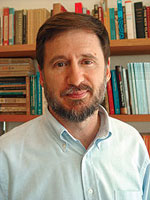
Michael Doyle specializes in international relations theory, international security, and international organizations. Doyle previously served as assistant secretary-general and special adviser to United Nations Secretary-General Kofi Annan from 2001 to 2003. His responsibilities included strategic planning (Millennium Development Goals), outreach to the international corporate sector (the Global Compact), and [ ... ]
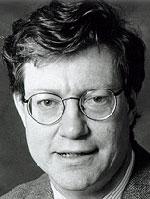
Richard M. Pious, professor of political science and Adolph S. and Effie Ochs Chair in History and American Studies, taught at Columbia College from 1968 through 1972, and joined the Barnard faculty in 1973. He also taught at York University, Toronto. Professor Pious's teaching includes courses on American politics, constitutional and public law, and political decision making. Professor Pious has written widely on A [ ... ]
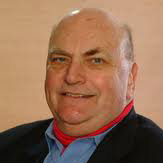
John Washburn has had an extensive career in diplomacy and international governmental and non-governmental organizations. He was a director in the Executive Office of the Secretary-General of the United Nations between January 1988 and April 1993. Thereafter he was a director in the Department of Political Affairs at the United Nations until March 1994. He is currently Convener of the American Non-Governmental Organi [ ... ]
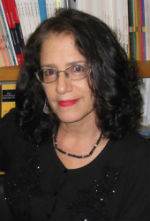
Jean Cohen (Ph.D., The New School for Social Research, 1979) is the Nell and Herbert M. Singer Professor of Political Thought. She specializes in contemporary political and legal theory, continental political thought, contemporary civilization, critical theory, and international political theory. She works on civil society, sovereignty, human rights, gender, and the law. She is the author of numerous books and articles [ ... ]
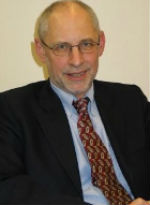
Andrew J. Nathan is Class of 1919 Professor of Political Science at Columbia University. His teaching and research interests include Chinese politics and foreign policy, the comparative study of political participation and political culture, and human rights. He is engaged in longterm research and writing on Chinese foreign policy and on sources of political legitimacy in Asia, the latter research based on data from the [ ... ]
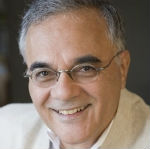
Mahmood Mamdani is the Herbert Lehman Professor of Government. He received his Ph.D. from Harvard University in 1974 and specializes in the study of African history and politics. His works explore the intersection between politics and culture, a comparative study of colonialism since 1452, the history of civil war and genocide in Africa, the Cold War and the War on Terror, and the history and theory of human rights. Prior [ ... ]
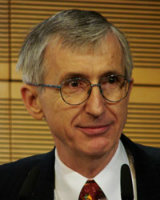
Jenik Radon is an adjunct professor at Columbia University's School of International and Public Affairs (SIPA), leading capstone projects and teaching a course on energy, human rights and corporate responsibility. He has been awarded for his teaching at SIPA and at Monterrey Tech in Mexico. He has lectured in over 40 countries. He was selected as a Fulbright Specialist (2012) at the Law School of Makerer [ ... ]
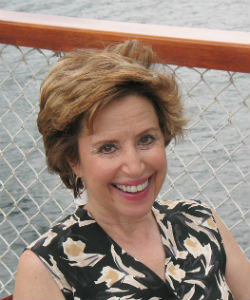
Naomi Weinberger’s primary academic interests are in international security studies, with expertise in the Middle East. Her publications include Syrian Intervention in Lebanon (Oxford University Press) and many articles on global peace operations and conflict resolution. She is currently pursuing research on Palestinian security sector reform (for a book to be released by Lynne Rienner Publishers) and on the r [ ... ]
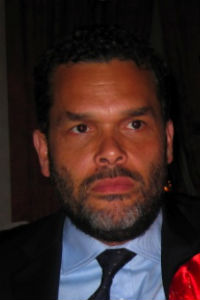
Michael Gaouette has 20 years of United Nations and international NGO experience. He has served the UN in New York, Geneva, West Africa and the Middle East in a variety of roles, including as the leader of the team that established a peacekeeping operation in Darfur, Sudan. He was also the Director of Emergency Operations at a major British NGO, where he led humanitarian responses to crises around the world, including in [ ... ]
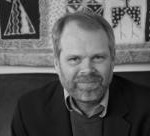
Richard Gowan is the Research Director at the New York University Center on International Cooperation. He is also a Senior Policy Fellow at the European Council on Foreign Relations. He is the overall editor of the Annual Review of Global Peace Operations, the leading source of data and analysis on military and civilian crisis management missions, which he helped launch in 2006. He has also written on the European Un [ ... ]
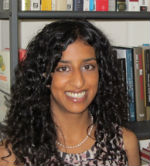
I study modern state formation in conflict and post-conflict settings. In particular, I have spent the last several years studying the role of warlords in the state building project in post-2001 Afghanistan. I am fascinated by the challenges weak political centers face as they attempt to grow their authority in the face of formidable competitors. Unlikely alliances sometimes form that turn strongmen into governors operati [ ... ]
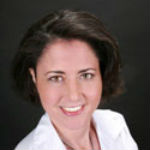
Liz Ševčenko was Founding Director of the International Coalition of Sites of Conscience, a network of historic sites that foster public dialogue on pressing contemporary issues. Starting in 1999 as a meeting of nine sites under the auspices of the Lower East Side Tenement Museum, under her leadership the Coalition grew to over 250 members in more than 40 countries; launched regional networks in Russia, South Ame [ ... ]
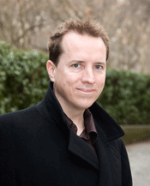
Matthew Connelly, professor, works on the history of eugenics, migration, and birth control. His most recent book, Fatal Misconception: The Struggle to Control World Population, has just been published by Harvard University Press. His research articles have appeared in such journals as Population and Development Review, Comparative Studies in Society and History, The International Journal of Middle East Studies, The Ameri [ ... ]
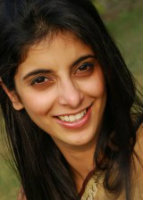
Received her B.A. (2001) and M.A. (2003) in English from St. Stephen’s College, Delhi University, and her M.A. (2004) and Ph.D. (2009) in Performance Studies from the Tisch School of the Arts, New York University. She was the receipent of the Deena Burton Dissertation Research Award (May 2009), and a recipient of the Paulette Godard Summer Fellowship (2006). She recently published “Book Review: Sudipto Chatter [ ... ]
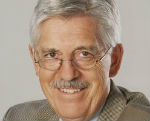
Dinges is in charge of the school’s radio curriculum, which he revamped to emphasize public radio journalism. He received a BA from Loras College and an MA in Latin American Studies from Stanford University. Dinges began his career as a reporter and copy editor for The Des Moines Register & Tribune. He was a freelance correspondent in Latin America for many years, during the period of military governments and ci [ ... ]
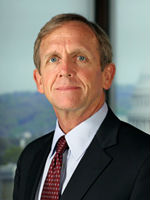
Eric Olson is a former U.S. Navy SEAL who rose to become a four-star admiral and commander of the U.S. Special Operations Command. He retired in 2011 after almost four decades of active service. A Naval Academy graduate, Olson received his MA from the Naval Postgraduate School, where he studied political and military affairs with an emphasis on Africa and the Middle East. His overseas service included assignments in Israe [ ... ]
.jpg)
Stuart Gottlieb is an adjunct professor of International Affairs and Public Policy at SIPA, where he teaches courses on American foreign policy, counterterrorism, and international security. He also serves as the faculty adviser for SIPA’s summer degree program in International Relations, and is an affiliate with the Saltzman Institute of War and Peace Studies. In addition, he teaches courses for New York University [ ... ]
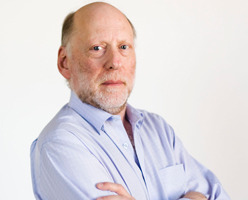
Todd Gitlin is professor of journalism and sociology and chair of the Ph. D. program in Communications at Columbia University. He holds degrees in three different subjects: mathematics (B.A., Harvard), political science (M.A., Michigan), and sociology (Ph.D., Berkeley). Along the way, he became a political activist in the New Left of the 1960s, contributed to the so-called underground press, and began to write books. Gi [ ... ]
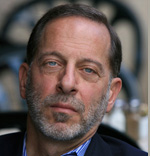
Rashid Khalidi is the Edward Said Professor of Arab Studies at Columbia University. He received his B.A. from Yale University in 1970, and his D.Phil. from Oxford in 1974. He is editor of the Journal of Palestine Studies, and was President of the Middle East Studies Association, and an advisor to the Palestinian delegation to the Madrid and Washington Arab-Israeli peace negotiations from October 1991 until June 1993. Kh [ ... ]
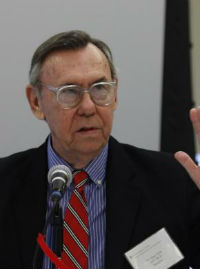
Gary Sick is a senior research scholar at Columbia University’s Middle East Institute and an adjunct professor at the School of International and Public Affairs. He served on the National Security Council under Presidents Ford, Carter, and Reagan. He was the principal White House aide for Iran during the Iranian Revolution and the hostage crisis. Sick is a captain (ret.) in the U.S. Navy, with service in the Pe [ ... ]
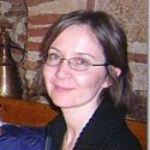
Stephanie V. Grepo leads the ISHR Human Rights Advocates Program (HRAP), an annual training program for human rights activists from around the world. From 2000 to 2007, Ms. Grepo was seconded by the U.S. Department of State to the Organization for Security and Co-operation in Europe, the world’s largest regional security organization. She organized elections and developed multi-ethnic experiential education p [ ... ]

Kristina Eberbach is the director of ISHR's human rights education programs, which include the Human Rights Studies M.A. program, an undergraduate human rights major and concentration, and a human rights summer certificate. She developed and teaches an introductory human rights summer workshop and has lectured on topics including transitional justice, human rights education, international humanitarian law, and women [ ... ]
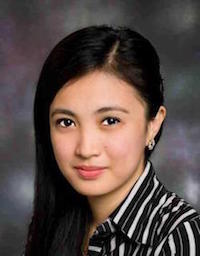
Dahlia is a visiting PhD student at AC4 from the Australian National University. Her dissertation is examining how United Nations transitional administrations in Cambodia, Kosovo, and East Timor incorporated local perspectives into their post-conflict rebuilding strategies. She focuses on four crucial areas according to the rebuilding component of the 2001 Responsibility to Protect (R2P) document: security, justice [ ... ]
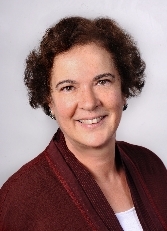
My work, strongly ethnographic and mostly based in Egypt, has focused on three broad issues: the relationship between cultural forms and power; the politics of knowledge and representation; and the dynamics of gender and the question of women’s rights in the Middle East . My first book, Veiled Sentiments, was about the politics of sentiment and cultural expression in a Bedouin community in Egypt that made an argumen [ ... ]
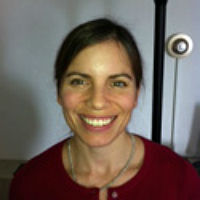
Ariella Lang joined the Institute for the Study of Human Rights in May 2011. As director of the AHDA program, she oversees research and curricular development of activities relating to historical dialogue at the Institute. Historical dialogue is an emerging field of study that seeks to explore and address conflicting narratives about the past as part of the work of reconciliation and democracy promotion. To this end, Dr. [ ... ]
.jpg)
2011 Nobel Peace Laureate Leymah Gbowee is a Liberian peace activist, trained social worker and women’s rights advocate. She currently serves as Executive Director of the Women, Peace, and Security program at the Earth Institute at Columbia University and is the founder and current President of the Gbowee Peace Foundation Africa, the founding head of the Liberia Reconciliation Initiative, and the co-founder and form [ ... ]